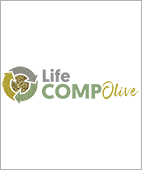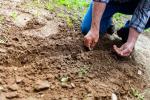
LIFE Project: New generation of biocomposites based on olive fibers for industrial applications
- Type Project
- Status Filled
- Execution 2019 -2023
- Assigned Budget 1.818.362,00 €
- Scope Europeo
- Autonomous community Andalucía
- Main source of financing LIFE
- Project website Web del proyecto
The COMPOLIVE project aims to develop a new generation of biocomposites based on olive pruning waste that can be used in the automotive and furniture sectors.
The EU is the world's leading producer, consumer, and exporter of olive oil. The main European olive oil producers are Spain (over 65%), Italy (18%), Greece (almost 9%), and Portugal (almost 77%). In Andalusia alone, 30% of the total cultivable land (1.5 million hectares) is dedicated to olive cultivation.
The project contributes to the implementation of European environmental policies by reducing the uncontrolled release of gases into the environment, reducing waste creation, incineration, and landfilling in accordance with the Waste Directives and the Roadmap for a Resource-Efficient Europe, and replacing carbon/grass fibers with natural fibers used by the automotive and furniture sectors, in accordance with the European Strategy for Plastics in a Circular Economy.
- Recycling of olive pruning waste to obtain fiber for new biocomposites.
- Reduction in virgin plastic based on fossil fuels due to the amount of natural olive fiber incorporated into the matrix and the use of recycled PP.
- Reduction of CO2 emissions. | Creation of three new business models related to waste management within the new value chain of the olive oil sector: automotive fibers, outdoor furniture, and home furnishings.
- To enhance the sensitivity and awareness of the primary sector by promoting the economical and ecological management of pruning waste.
- Reuse approximately 21 tons/year of olive pruning waste collected during the project, which represents a production of 15 tons/year of fiber.
- Reduction of 35-45 tons/year of virgin fossil-based plastic used in the automotive and furniture sectors by producing a compound with up to 35% olive fiber and based on recyclable PLA or PP biopolymer.
- Construction of at least three real demonstration prototypes.
- Reduction of CO2 emissions by more than 40 tons/year at the end of the project.
- Coordinator/entity name: Francisco Javier Navas Martos
Postal address: Caada de la Fuente Industrial Estate, Vilches Street s/n, 23600, Martos/Ene,
- FUNDACION ANDALTEC I+D+I
- CALIPLAST(Caliplast)
- Ford(Ford-Werke GmbH)
- UJA(University of Jaén)
- MAT PEñA(MATRICERIA PEñA S.L)
- CITOLIVA(FUNDACIóN CITOLIVA, CENTRO DE INNOVACION Y TECNOLOGíA DEL OLIVAR Y EL ACEITE)







